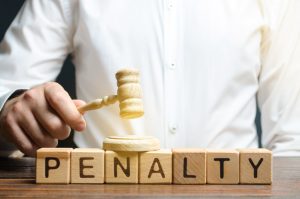When undertaking roofing projects related to storm damage in Florida, it is essential for roofers to establish clear and comprehensive contracts. These contracts serve as the foundation for the working relationship between the roofer and the client, providing protection and clarity for both parties. This article aims to highlight key considerations for roofing contracts, focusing on storm damage jobs. We will discuss provisions that should be included in every roofing contract, provisions specific to storm damage insurance restoration projects, and cautionary notes about potential pitfalls. Additionally, we will emphasize the importance of involving an attorney to review the contract, ensuring its enforceability in court. By following these guidelines, roofers can establish solid contracts that protect their interests and foster successful working relationships with their clients.
Essential Provisions for Every Roofing Contract
To ensure clarity and legal protection, every roofing contract should include the following provisions:
- a. Scope of Work: Clearly define the scope of the roofing project, detailing the specific services to be provided, materials to be used, and any additional work or modifications agreed upon. Be specific about the expected timeline for completion.
- b. Pricing and Payment Terms: Clearly state the agreed-upon price, payment schedule, and methods of payment. Specify any upfront deposits, progress payments, or final payment requirements. Address potential additional costs or change orders to avoid misunderstandings.
- c. Material and Workmanship Warranties: Include provisions that outline the warranties provided for both materials and workmanship. Specify the duration of the warranties and any conditions or limitations that may apply. This builds trust with clients and demonstrates the roofer’s commitment to quality.
- d. Permits and Insurance: Specify that the roofer is responsible for obtaining all necessary permits and ensuring they comply with local building codes. Confirm that the roofer carries adequate liability insurance to protect both the roofer and the client.
- e. Project Changes and Delays: Include provisions that address potential project changes, such as modifications requested by the client or unforeseen issues discovered during the roofing process. Define the process for documenting and approving changes and the potential impact on project timelines and costs.
Provisions Specific to Storm Damage Insurance Restoration Projects
For roofing projects related to storm damage insurance restoration, consider incorporating the following provisions:
- a. Insurance Coordination: Outline the roofer’s responsibilities in assisting the client with the insurance claims process, including providing necessary documentation, estimates, and supporting evidence of storm-related damage. Specify the roofer’s cooperation with insurance adjusters and their commitment to fair and accurate assessments.
- b. Supplemental Claims: Address the potential for supplemental claims if additional damage is discovered during the course of the project. Clearly define the process for documenting and submitting these claims to the insurance company and clarify the responsibility for any associated costs.
- c. Deductibles and Insurance Proceeds: Clarify that the client is responsible for paying their insurance deductible directly to the roofer, as required by Florida law. Specify the handling of insurance proceeds, including the disbursement process and any retention of funds until the project is completed.
- d. Emergency Repairs: If emergency repairs are necessary to mitigate further damage before the full restoration, outline the scope of these repairs and specify the process for documenting and obtaining approval from the insurance company.
Cautionary Notes: Potential Contractual Pitfalls to Avoid
While drafting your company’s roofing contracts, it is crucial to be aware of potential pitfalls that may negatively impact the roofer or the client. Consider the following:
- a. Vague or Ambiguous Language: Use clear and unambiguous language throughout the contract to minimize the risk of misunderstandings or misinterpretations. Clearly define terms and obligations to avoid potential disputes. When a contract is vague or ambiguous, judges often interpret the unclear provision to the advantage of the client.
- b. Unreasonable Limitations of Liability: Avoid including provisions that unreasonably limit the roofer’s liability for damages or substandard work. Such limitations may be deemed unenforceable or may negatively affect the roofer’s reputation and potential liability in the event of a dispute.
- c. Dispute Resolution Mechanisms: Include provisions that outline the preferred methods for resolving disputes, such as mediation or arbitration. This allows for a more efficient and cost-effective resolution process, potentially avoiding lengthy court proceedings.
The Role of an Attorney in Reviewing the Contract
To ensure that the roofing contract is legally sound and provides adequate protection for both the roofer and the client, it is highly recommended to involve an attorney specializing in contract law. An attorney experienced in contract law and property damage cases can review the contract, identify potential issues, and provide valuable guidance and ideas on how to craft a better contract. Their expertise can help ensure that the contract is enforceable in court, protecting the roofer’s rights and interests should any issues with the contract arise with customers.
Make Sure Your Company Has Well Written Roofing Contracts
Creating clear and comprehensive roofing contracts is crucial for roofers undertaking storm damage jobs in Florida. By including essential provisions in every roofing contract and specific provisions for storm damage insurance restoration projects, roofers can establish solid agreements that protect their interests and foster successful working relationships with their clients. However, it is essential to exercise caution and avoid potential pitfalls, such as ambiguous language or unreasonable limitations of liability. Engaging an attorney to review the contract adds an extra layer of protection, ensuring its enforceability in court and providing guidance on potential legal issues. By following these guidelines and involving legal expertise, roofers can maximize their protection, minimize disputes, and build trust with clients, ultimately leading to successful and mutually beneficial roofing projects.
You May Also Like:
- Legal Considerations for Roofers in Property Damage Claims
- Property Damage Prevention: 7 Tips On Maintaining Your Florida Home’s Exterior To Help You Minimize Property Damage
- Mastering Florida’s Roofing Codes in the Face of Storms: A Roofer’s Definitive Guide
- Understanding Wind-Driven Rain Damage and Protection Strategies for Florida Homeowners


